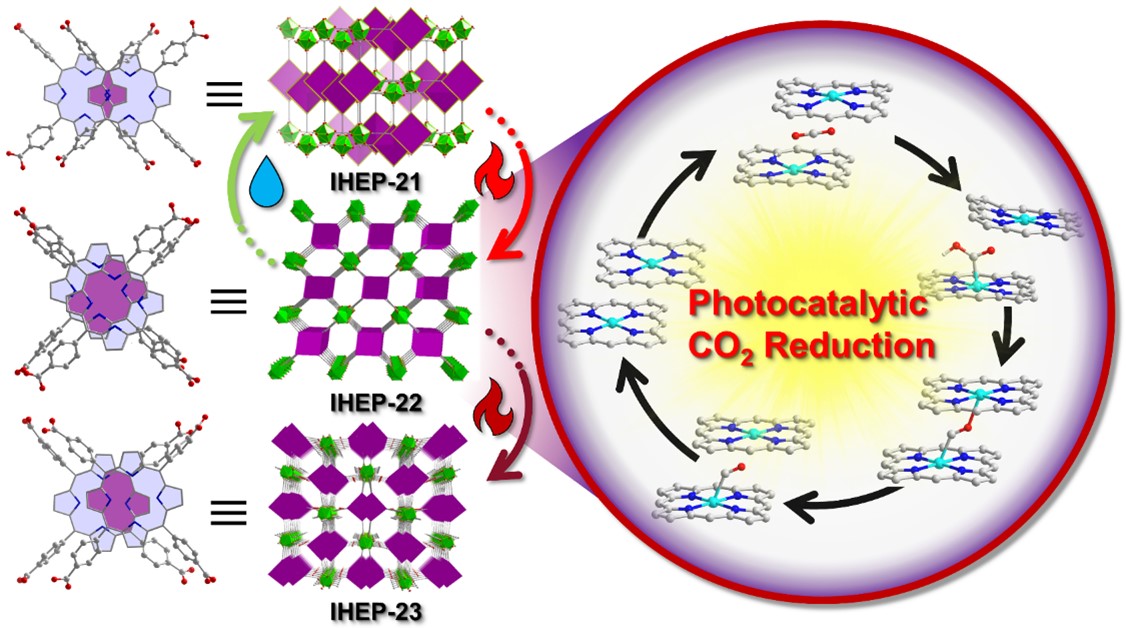Highlights/News
Scientists Make Progress in Boosting Photocatalytic Carbon Dioxide Reduction via Actinide Metal-Organic Frameworks
2023-08-16
Professor SHI Weiqun's group from the Institute of High Energy Physics, Chinese Academy of Sciences, has recently made progress in the application of metal-organic frameworks (MOFs) in the field of photocatalytic CO2 reduction. The study, entitled “Thermally Induced Orderly Alignment of Porphyrin Photoactive Motifs in Metal-Organic Frameworks for Boosting Photocatalytic CO2 Reduction,” was published in the Journal of the American Chemical Society.
The researchers constructed the MOF material IHEP-21 with the actinide metal thorium as the node and the functional organic ligand porphyrin, and proposed to utilize a thermally induced strategy to obtain the MOF materials IHEP-22 and IHEP-23 via a two-step single-crystal-to-single-crystal transformation. The large ionic radius and high coordination number of thorium give IHEP-21 more structural variability, which is conducive to the thermally induced multistep crystal transformation process of actinide-porphyrin MOFs.
The structural analysis shows that the extent of stacking of porphyrin molecules in the materials changed after a two-step structural transformation, which greatly affected the photoelectric properties and photocatalytic CO2 reduction activity of the materials. The photoelectrochemical characterization and theoretical calculation show that the electron transport pathway formed between the porphyrin molecules inhibits the recombination of photogenerated carriers, thus realizing efficient photocatalytic CO2 reduction. This work provides a new method for regulating the separation and migration of carriers in photocatalysts, which is helpful in guiding the design and synthesis of photocatalysts with excellent performance for the production of solar fuels.
The research is financially supported by the National Science Fund for Distinguished Young Scholars and the National Natural Science Foundation of China.

Contact Information
Mr. GUO Lijun
ljguo@ihep.ac.cn